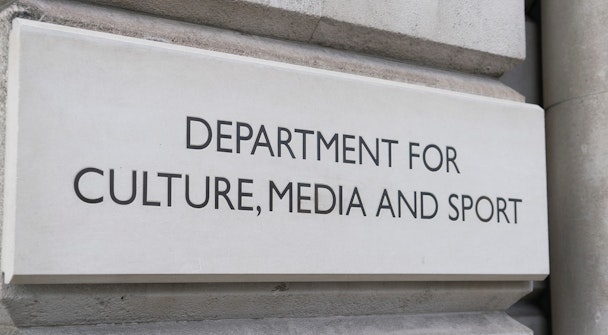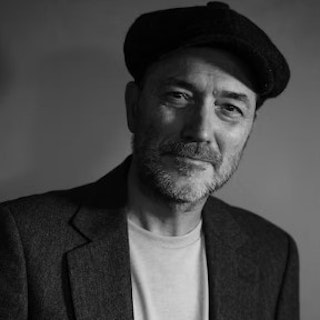How Conscious Advertising Network could redeem its status as an honest broker
Canceling Can is misguided, writes The Drum's editor-in-chief Gordon Young, but the under-fire advertising coalition should reflect on its own mission.

DCMS has distanced itself from the Conscious Advertising Network / Adobe Stock
It looks like the UK government is seeking to cancel Can – otherwise known as the Conscious Advertising Network.
The industry body – which ostensibly campaigns for a safer online environment – has been accused by MPs of being linked to activists seeking advertising boycotts of right-leaning media outlets.
Advertisement
Over the weekend it was reported that culture secretary Lucy Frazer has pledged that government ministers from the Department of Culture Media and Sport (DCMS) will not meet the campaign group. Can has been helping the DCMS review existing advertising rules and standards.
Frazer's intervention came in a written reply to a letter from former prime minister Liz Truss to current PM Rishi Sunak expressing concern at the influence of the group in the process.
Frazer wrote: “You have my assurance that we will not be meeting them and that their campaign, which you refer to, will have no influence whatsoever on the work of this programme.
“Individuals must be free to access information from a wide range of sources to form their own opinions and that’s why I firmly believe that brands should be free to advertise in whatever media outlets they wish.
“I would like to be clear that I do not support the boycotting or discrimination of any media outlet based on political views.”
But recently, Can's co-founders Harriet Kingaby and Jake Dubbins told The Telegraph: “The Conscious Advertising Network actively supports free speech, and we have never called for any ad boycotts based on political views.“ Speaking to The Drum, Kingaby said that accusations the group encourages boycotts amount to a “smear campaign”.
Advertisement
The Conscious Advertising Network’s mission remains clear – to create “a safe, inclusive and commercially viable information ecosystem for advertisers and wider society that supports quality journalism and content, diversity of media and scientific consensus.”
But there is no denying that for Can, the status of politically neutral honest broker – so vital to the success of any industry lobby group – is under threat.
For several weeks it has not only drawn fire from the links of Liz Truss, but other Tory grandees such as David Frost and Lee Anderson.
They point out that although Can itself may not be calling for boycotts many of the individuals and organizations associated with it, including Stop Funding Hate, have been doing just that.
On the face of it seeing Can, deemed by many to be a benign organization, becoming a high-profile Tory punchbag is a shock.
Suggested newsletters for you
It invites members to sign up to seven manifestos. Most dealing with issues around ad fraud and sustainability are not controversial.
However, others – drawn up with the help of Stop Funding Hate – deal with hate speech, and that could be the root of the current row.
The challenge is around how to define this when one person’s hate speech could be another’s legitimate political position.
The Drum had a flavor of this when Dubbins took to LinkedIn to comment on the fact that GB News had sponsored The Drum Roses Awards.
In his post, he flagged the terms in which some of the station’s presenters had discussed net zero and trans activism. While not directly calling for a boycott of GB News, he wrote: The Drum is “taking money from GB News to sponsor the Roses Creative Awards tonight.
“Of course, The Drum is free to report on climate and DE&I in any way it likes. It is also free to be sponsored by anyone it likes. But it is a challenging position to hold.”
But of course that is a challenging thing to say if you claim to run an organization "that actively supports free speech, and (has) never called for any ad boycotts based on political views".
The post prompted others – either directly or indirectly – connected to Can, to get in touch asking us to explain our position, which we were pleased to do.
We pointed out some of our defining values – a passionate belief in the importance of freedom of expression and diversity of opinion.
We explained how this meant we had to include even those whose views may not align with many of our readers’, and how remaining impartial meant we could not sanction mainstream media owners simply because of their editorial stance.
We found the conversations constructive, and a reminder of the importance of maintaining good lines of communication. And of course, the diversity of opinion was invigorating.
That is why the DCMS is wrong to break off communication with Can. There is a supreme irony of canceling people as a protest over canceling. The department should lead by example and engage in both dialogue and debate.
But Can also needs to defuse this political battle - maybe getting out of the ‘hate’ business and moving back to less subjective issues around ad fraud, child protection and sustainability, for example.
Of course, another way of bringing some of its critics onside might be to create an eighth manifesto. It could be dedicated to freedom of expression.

